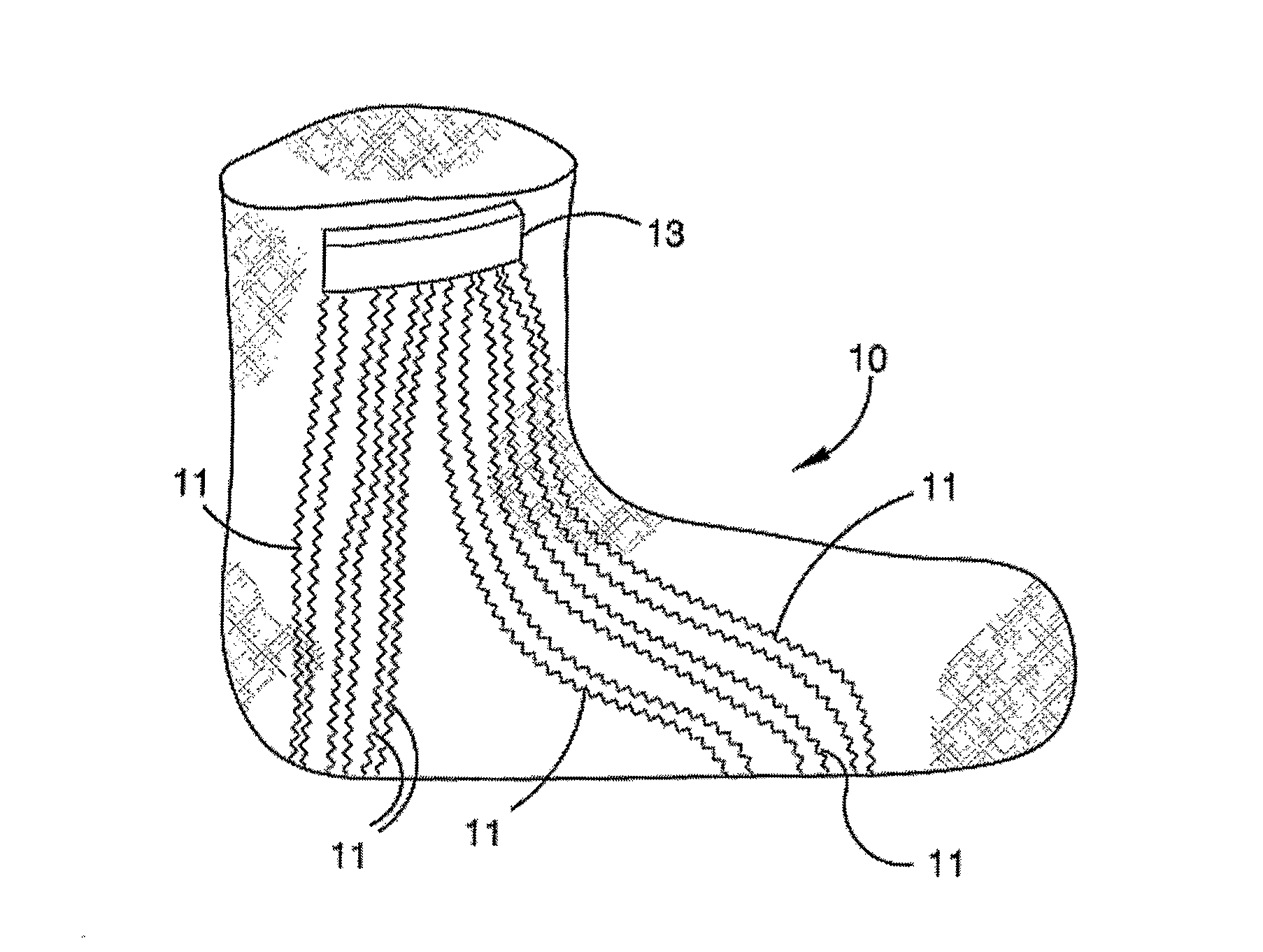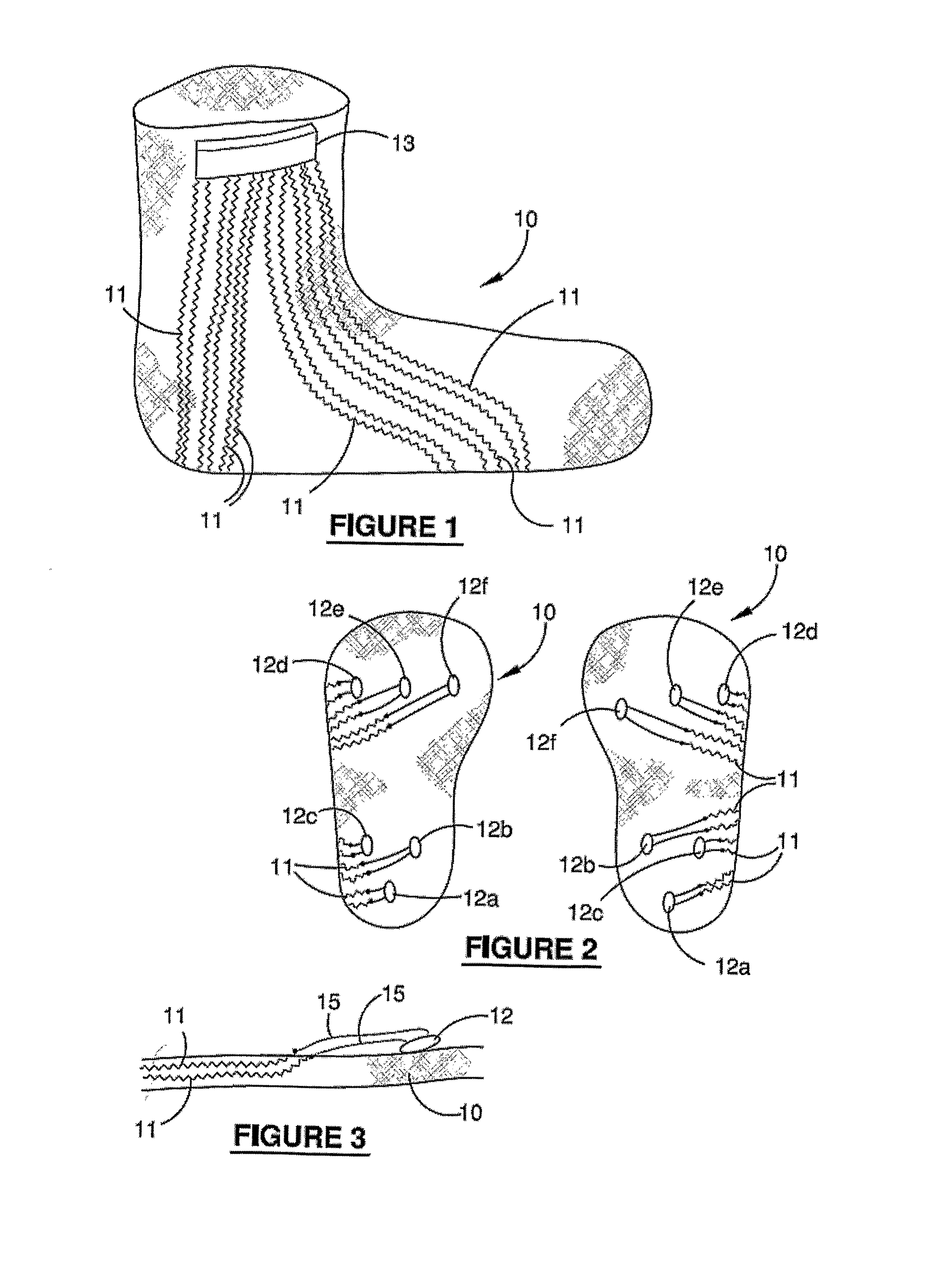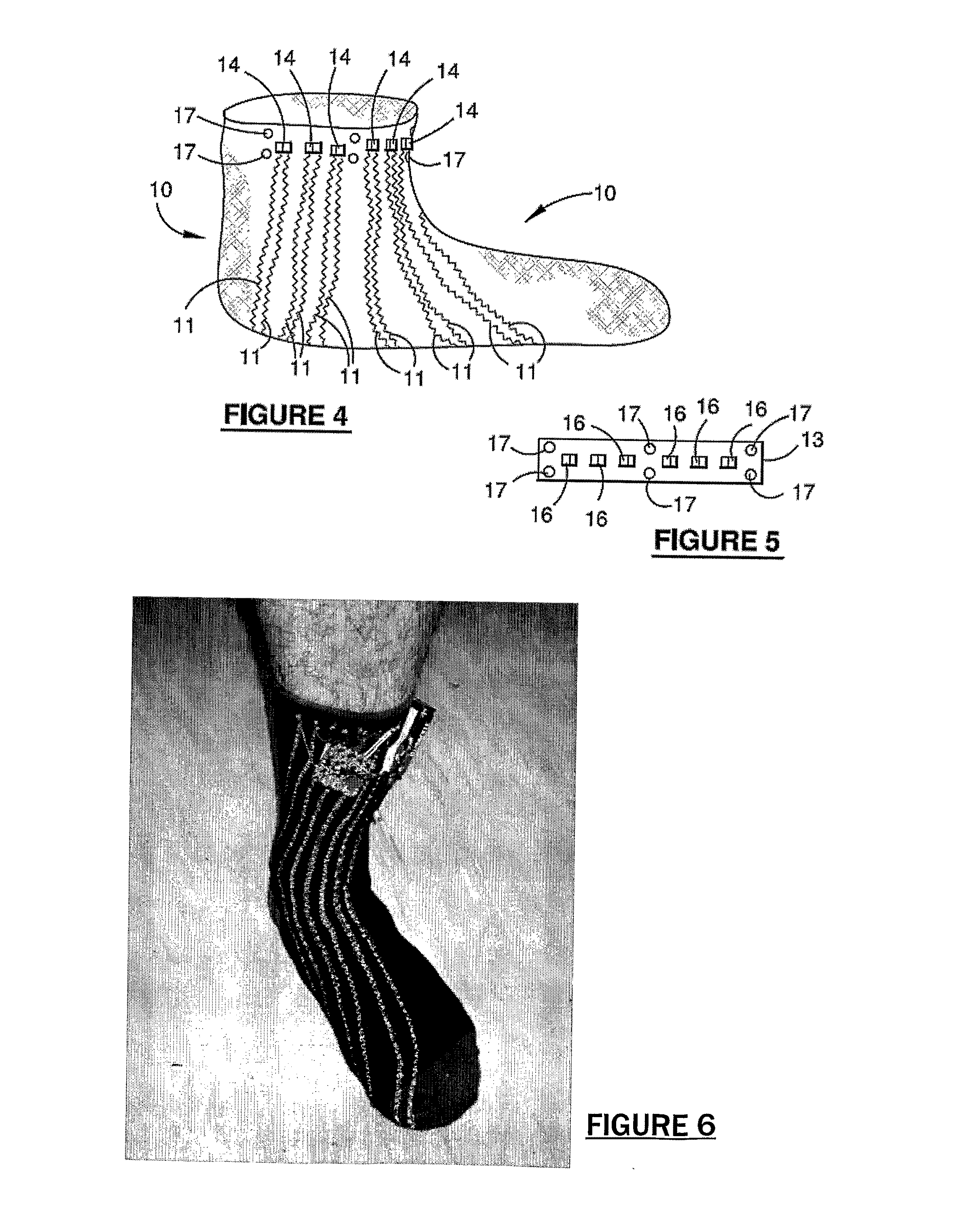System, garment and method
a technology applied in the field of system and garment, can solve the problems of poor circulation, affecting the ability of the body to heal, and not being suitable for elderly or frail persons or extended wearing, and devices are shoe inserts and therefore only effectiv
- Summary
- Abstract
- Description
- Claims
- Application Information
AI Technical Summary
Benefits of technology
Problems solved by technology
Method used
Image
Examples
Embodiment Construction
[0046]A series of preferred features that may apply equally to both the system, garment and method embodiments of the invention will now be described.
[0047]The ability of the sensor to not cause an increase in pressure at the surface of a user subject to loads or pressure may be achieved by a number of ways. For example, the substrate may contain recesses that house the sensors so as to provide a continuous smooth outer surface and the housing and sensors have substantially the same hardness or compression characteristics so as to maintain a relative smooth surface when the substrate is under load. However, rather than providing recesses in the substrate that accommodate the sensors, preferably the sensors have a low profile that is equal to or less than 5.0 mm in thickness, even more preferably equal to or less than 3.0 mm in thickness, and suitably less than or equal to 1.0 mm in thickness.
[0048]Even more preferably, the sensors have a thickness that is equal to or less than 0.5 m...
PUM
 Login to View More
Login to View More Abstract
Description
Claims
Application Information
 Login to View More
Login to View More - R&D
- Intellectual Property
- Life Sciences
- Materials
- Tech Scout
- Unparalleled Data Quality
- Higher Quality Content
- 60% Fewer Hallucinations
Browse by: Latest US Patents, China's latest patents, Technical Efficacy Thesaurus, Application Domain, Technology Topic, Popular Technical Reports.
© 2025 PatSnap. All rights reserved.Legal|Privacy policy|Modern Slavery Act Transparency Statement|Sitemap|About US| Contact US: help@patsnap.com



